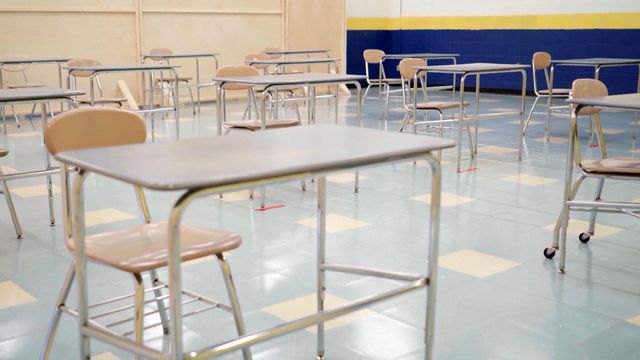Duke study of virus in students to help guide schools' decisions on returning to classrooms
Duke University researchers plan to monitor coronavirus transmission among students and staff in a couple of local school districts to show the impact of the virus as schools shift from remote to in-person instruction.
Posted — UpdatedThe group, which includes experts in epidemiology, pediatrics, general medicine, data science and mental health, plans to analyze trends surrounding the virus and its transmission to help devise and implement procedures for school districts on everything from face masks to instructional methods.
"It gives folks involved a sense of an independent group that has true expertise that can provide thoughtful input into the situation," said Dr. Daniel Benjamin, a professor of pediatric infectious disease with Duke’s Clinical Research Institute who co-chairs the advisory board.
The group is working with the schools to determine what data will be collected weekly, but Benjamin said it will likely include positive cases and students and staff who show COVID-like symptoms.
“We envision having a breakdown available by school, by gender, by race/ethnicity, by age and by ZIP code,” he said. “Maybe this school over here needs a little more help in how they are doing hand hygiene or distancing of students. Maybe this school over here has a higher rate because they have got a more vulnerable student population they are serving, and we need to provide more support to that particular school.”
Benjamin said he expects to find higher transmission rates in high school students versus elementary students, especially juniors and seniors, who seem to be infected more like adults.
"We think that relates to the amount of the key receptor protein – think of the receptor protein as the key the virus uses to unlock and infect the cell in the body," he said. "That little key is expressed a lot in adults. Adults have a lot of keys in their nose. Children have very few, and younger children have less than older children."
The advisory board will only make recommendations, he said, and local school boards will make the final determination about what students to bring back to the classroom.
The NIH has expressed interest in expanding the study nationwide to show how the spread of the virus affects school populations in other states," Benjamin said.
"If the federal government would like to invest substantially in the project, we have the staff to make this cover the nation," he said. "That’s one of the nice things about Duke and the Clinical Research Institute. We have got 1,200 people. We can allocate staff and turn on a dime and make a program that’s extremely large.”
Related Topics
• Credits
Copyright 2024 by Capitol Broadcasting Company. All rights reserved. This material may not be published, broadcast, rewritten or redistributed.






